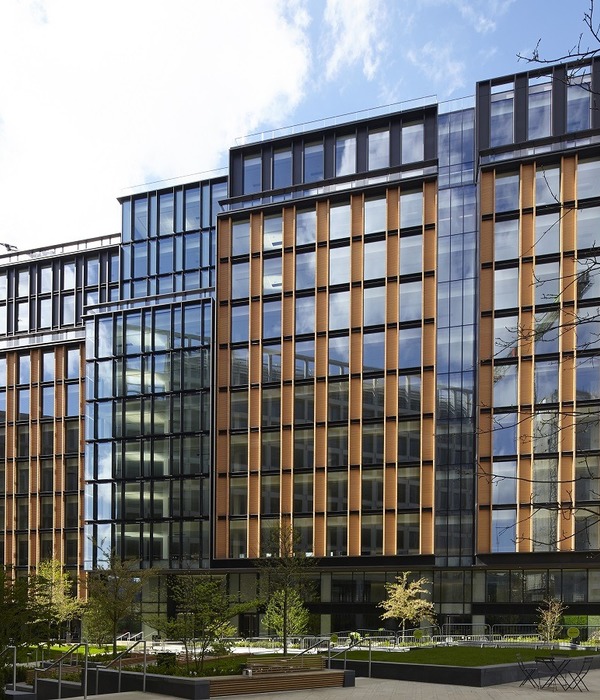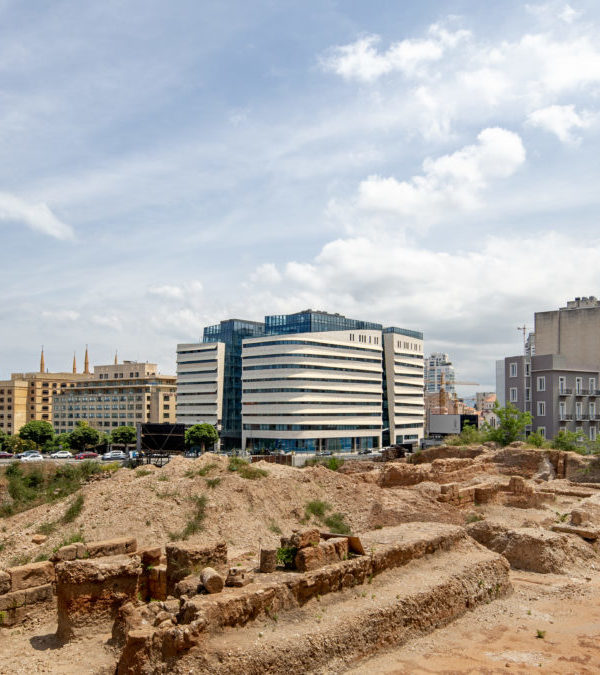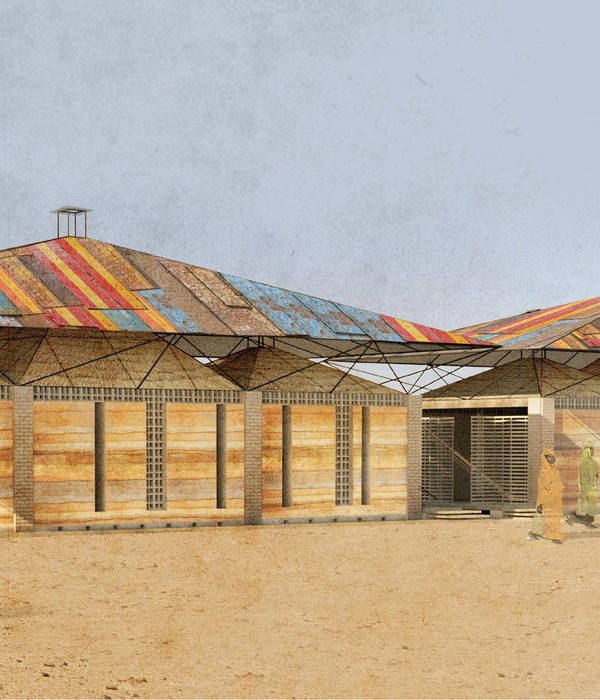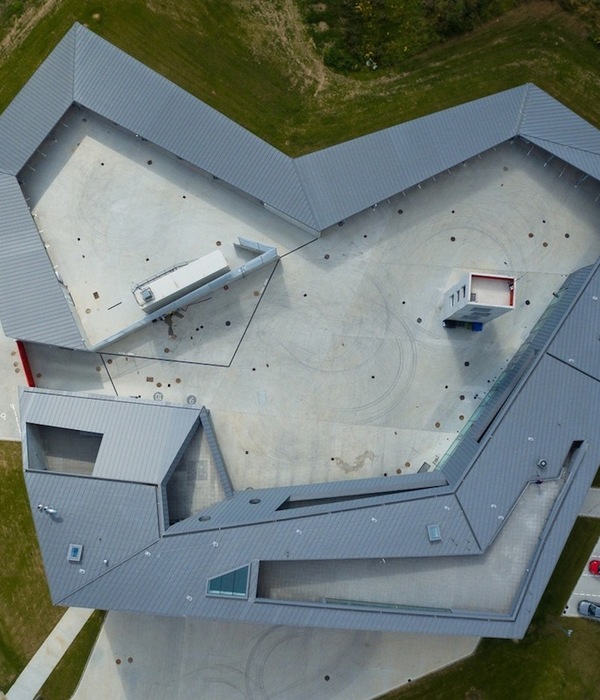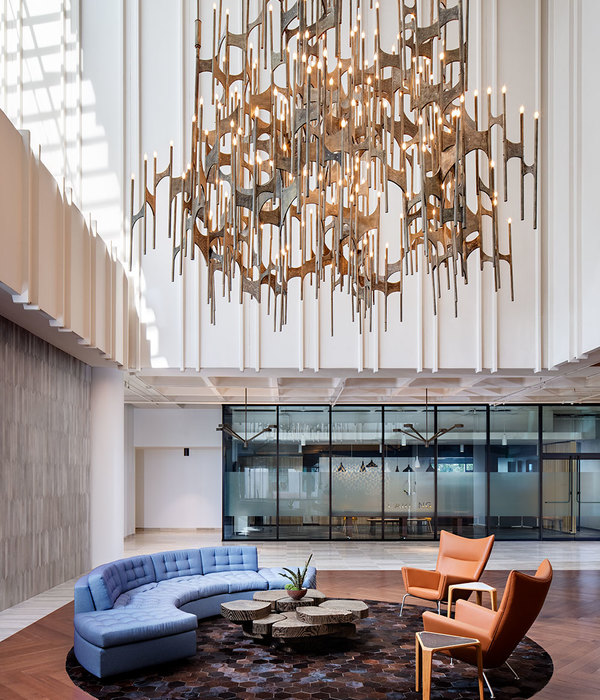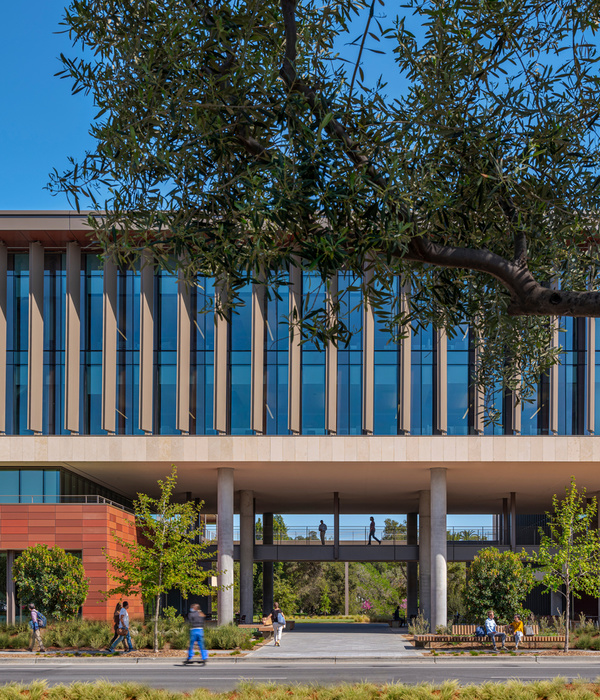The ice skating rink is located on a natural lake in the Kamchatka peninsula, Russia. Kamchatka is positioned high in the mountains surrounded by volcanic terrain, nearby nature reserves, hot springs and scenic routes through the peninsula make the area popular with tourists and locals.
The lake is exposed to bright daylight with winter temperatures averaging 20 F, ensuring the lake stays frozen over the winter months, the ice rink uses photovoltaic cells to generate an electrical current in order to freeze the lake throughout the year or when needed for ice hockey tournaments, the rink is flooded from below the surface to keep it frozen and strengthen the ice. The project is multi-purpose, with an outdoor cinema and a natural geothermal spa, the design intends to reflect the fluid nature and ever changing state of the immediate environment. Geothermal turbines are also used to keep the lake at a frozen temperature and provide an energy source for the cinema. The precipitous mountain range has many natural hot springs and skiing ranges.
The ice rink is partly enclosed by a sequence of striated cedar wood sections which create a dynamic relationship with the environment and the project's programs; the form mimics frozen water in the wind a crystallized scheme, a moment captured from a choreographed ice skating movement, like the blades the sections cut through and across the lake they are choreographed around the existing lake linking in cross section to appropriate the continuous nature of ice skating. Photovoltaic cells attached to the canopy hold the lighting and cinema projector outlets, providing the area with charging and docking stations, unused energy is fed back into the grid, they also absorb as much sunlight as possible to prevent the ice rink from melting; foldable seating act as platforms dotted around the main frame, creating a series of flexible spaces. The solar cinema projects onto the frozen structure, the design is partly enclosed for an ice solar cinema, an entirely self-sufficient projector which can be projected onto the ice covered surfaces of the skating rink, animating the design and presenting it as an all year all seasons sports and wellness center.
The lake freezes during the winter months and is used for hockey tournaments and as a skate park, a biodegradable LED net spans the area of the lake strengthening the ice and providing light and gadget/mobile charging stations during the evening.
The second stage of the project adapts the formal configuration of this ice skating rink so it is entirely run by solar energy in the Mongolian desert, the rink will be self-sufficient using renewable energy rather than harmful c02 refrigeration/mechanical refrigeration; capacitors store the electrical energy for night time use, a downshift in electrical consumption. A configuration of the striated canopy design will be used as a geothermal pavilion spa, geothermal turbines will generate enough electricity to be powered back into grid, whilst the photovoltaic cells will replace the need for harmful refrigerants. The intention is to have an eco-friendly ice skating rink.
Client China Film House
Status Current works
Type Parks, Public Gardens / Sports Centres / Sports Facilities / Wellness Facilities/Spas / Tourist Facilities / River and coastal redevelopment
{{item.text_origin}}

